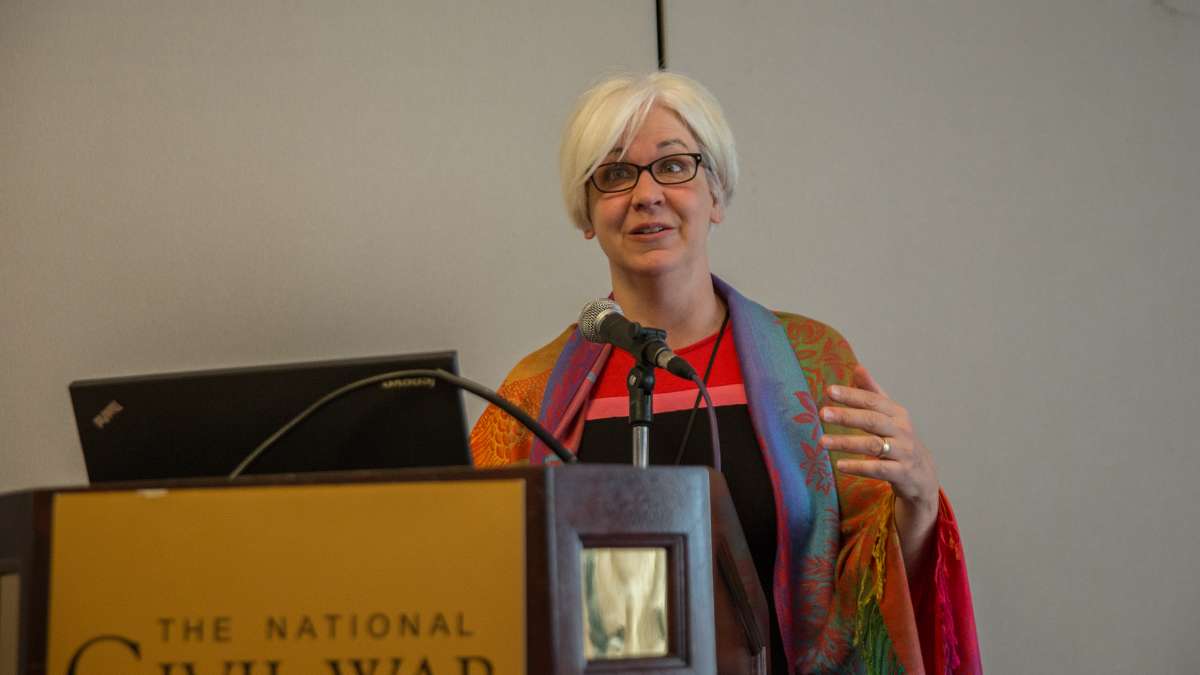Steal these ideas: Takeaways from the Keystone Crossroads conference
Seriously, they’re worth thieving.
More than 100 people gathered at the National Civil War Museum in Harrisburg on Wednesday for Keystone Crossroads’ second annual Urban Ideas Worth Stealing conference. Panelists and audience members discussed Pennsylvania cities’ biggest challenges, and offered their experience addressing them. Some of the day’s tweets can be found below, but here are a few of the highlights:
The great divideMunicipalities across Pennsylvania struggle with financial solvency but might see entering Act 47 as an admittance of failure. In “Off the books: Beyond Act 47,” Gerry Cross of Pennsylvania Economy League said it’s “more like using medical services when you need them.” Cross and Kim Bracey, mayor of York, agreed that the state legislature hasn’t provided communities the tools they need to address a pretty foundational problem: how to capture revenue. Pennsylvania cities rely on property tax, said Cross. When people live outside a city but continue to work or shop there, the city retains the cost of providing services without much compensation; people move, taxes can’t. Some cities have turned to “predatory” revenue practices, such as making arrests or citations, to raise funds, said Ryan Bowers, co-founder of municipal advocacy organization Activest. In the absence of state reform, Bowers said people can be motivated to invest transparently in cities, and advocate for their well-being.
Oh, what’s in a name? Panelists in “A funny thing happened on the way to the rotunda: A new era of running for office,” saw a similar disconnect between state legislators and the people they represent. Incumbents achieve re-election more than 90 percent of the time, said Andrew Lewis, a former GOP candidate for state senate. Over the course of 10 or 20 years in the legislature, representatives often become removed from the real challenges facing their constituents.
“I defy you to describe [a gerrymandered district] with normal words” That remove is often exacerbated by gerrymandering, and Pa. lends itself to partisan district-drawing, election reform specialist Carol Kuniholm explained during “Gerrymandering: Is there a better process for redistricting in Pennsylvania?” It’s one of the last large swing states. Over the last 60 years, the state legislature has drawn and redrawn congressional districts, “a little like allowing the fox to guard the henhouse,” writes Fair Districts PA, which works to ensure non-partisan redistricting and fair elections. A proposed amendment to the state constitution would empower an independent commission to draw congressional boundaries. While one audience member suggested the lines should be drawn entirely by computers, David Thornburgh, president of the Committee of Seventy said humans can describe their natural communities, and shouldn’t leave the process entirely to technocrats or mainframes.
Male modeling: mayors’ ideas that didn’t work, and ones that did Over lunch, three mayors talked about their administrations’ theft-worthy ideas with WHYY’s Dave Davies. Mayor Rick Gray of Lancaster said he’s not particularly concerned about ruffling feathers. When the city moved to install its own broadband network to boost education and business, Comcast wasn’t happy. But Gray said the city could do it and should. Matt Pacifico of Altoona worked to bring the city’s water and sewer systems back under control. Braddock mayor John Fetterman said his community works to boost the most vulnerable residents: “we as society do better when we’re all better off.” When asked to talk about an idea that didn’t work, Fetterman said his foray into male modeling had been ill-advised. After the laughter subsided, Fetterman attributed the city’s ongoing revitalization work to many people pulling together.
Many of the discussions touched on the need to share resources, or to repurpose existing structures to better serve people. In “Missed dinner: Approaches to solving urban food deserts,” one audience member suggested selling recently expired, but still safe, food at a deep discount. One panelist explained the link between food insecurity and job insecurity, both of which rely on transportation. The topic of better transit solutions got a workout during “Urban transportation projects that work for local communities,” while statewide job growth was the central discussion of “PennsylTECHy: Start-ups, entrepreneurship and brain gain in Pennsylvania cities.”
Penn State University professor Jennifer Van Hook kicked off the conference with a discussion of immigration in Pennsylvania. The “invisible lines” of race, gender, ethnicity, and class can take a long time to fade, but data and personal stories can help people be more open to newcomers breathing new life into the state.
More ideas and discussions can be found here among the Twitter trails.
WHYY is your source for fact-based, in-depth journalism and information. As a nonprofit organization, we rely on financial support from readers like you. Please give today.











